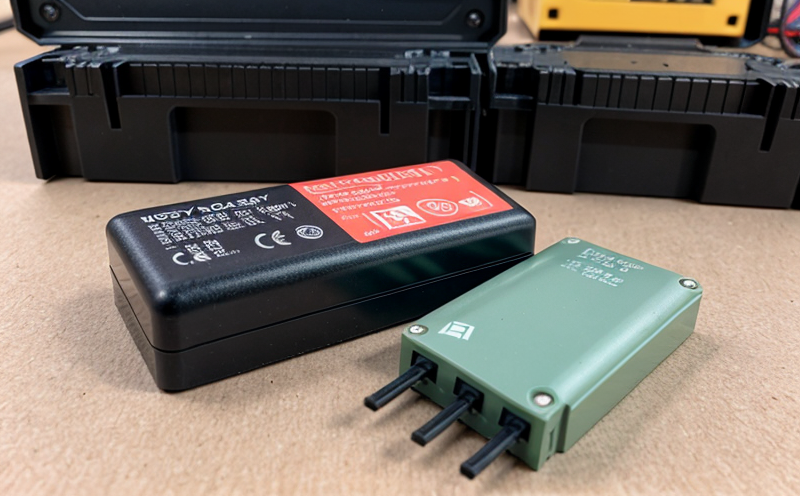DIN EN 62620 Secondary Lithium Battery Pack Performance Testing
The DIN EN 62620 standard is a critical regulatory framework for ensuring the safety and performance of secondary lithium batteries used in portable electronic devices, electric vehicles (EVs), and energy storage systems. This standard covers all aspects related to the design, manufacture, and testing of these batteries, particularly focusing on battery packs.
Testing according to DIN EN 62620 is mandatory for manufacturers looking to ensure their products meet regulatory requirements in Europe and beyond. The tests are designed to evaluate various performance characteristics including internal resistance measurement, charge/discharge cycling, over-temperature testing, and more. These parameters are crucial for ensuring the reliability of battery packs under real-world conditions.
During testing, batteries undergo rigorous procedures such as visual inspection, dimensional checks, weight measurement, and electrochemical characterization. Specific tests like high-rate discharge capacity, deep discharge capability, and charge retention also play significant roles in assessing performance metrics. Additionally, safety assessments are conducted to ensure that the battery packs do not pose a risk during use.
Understanding these testing requirements is essential for quality managers, compliance officers, R&D engineers, and procurement teams who must ensure their products comply with international standards. Proper implementation of DIN EN 62620 helps prevent potential hazards associated with lithium batteries while enhancing product performance and longevity.
Why It Matters
The significance of adhering to DIN EN 62620 cannot be overstated, especially in light of recent incidents involving lithium-ion battery failures. These events have highlighted the importance of robust testing protocols that can identify potential issues early on. By following this standard, manufacturers can significantly reduce risks associated with improper design or manufacturing processes.
Compliance not only protects consumers but also supports brand reputation and regulatory compliance across markets. Non-compliance could lead to product recalls, legal challenges, and financial losses. Therefore, investing in thorough testing according to DIN EN 62620 is a proactive measure that benefits both the manufacturer and end-users.
Moreover, this standard ensures compatibility with other international standards such as IEC 62133 for EVs and UL 1973 for consumer electronics. Meeting these requirements opens up opportunities for broader market access and strengthens partnerships within supply chains.
Industry Applications
| Application Area | Description |
|---|---|
| Portable Electronics | Battery packs for smartphones, tablets, and other handheld devices. |
| Electric Vehicles (EVs) | Powering batteries in electric cars and buses. |
| Energy Storage Systems (ESS) | Storing excess power generated from renewable sources like solar panels. |
| Military & Aerospace | Safeguarding critical operations through reliable power supply solutions. |
The DIN EN 62620 standard is applicable to all secondary lithium battery packs used in these sectors, ensuring consistent quality and safety across diverse applications. Each application area has unique demands, yet the core principles of DIN EN 62620 remain fundamental.
International Acceptance and Recognition
- The standard is widely recognized by regulatory bodies in Europe and beyond.
- Affirms compliance with international safety requirements for lithium batteries.
- Acceptance by major markets including the European Union, United States, China, and Japan.
- Facilitates easier market entry through standardized testing procedures.
The widespread acceptance of DIN EN 62620 underscores its importance in ensuring consistent quality across global markets. Compliance with this standard demonstrates a commitment to safety and performance, which is increasingly becoming a key differentiator for manufacturers operating internationally.





